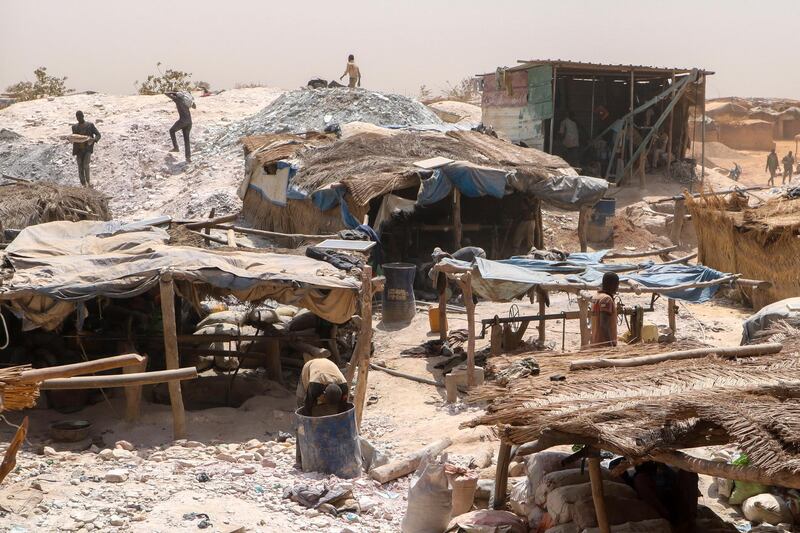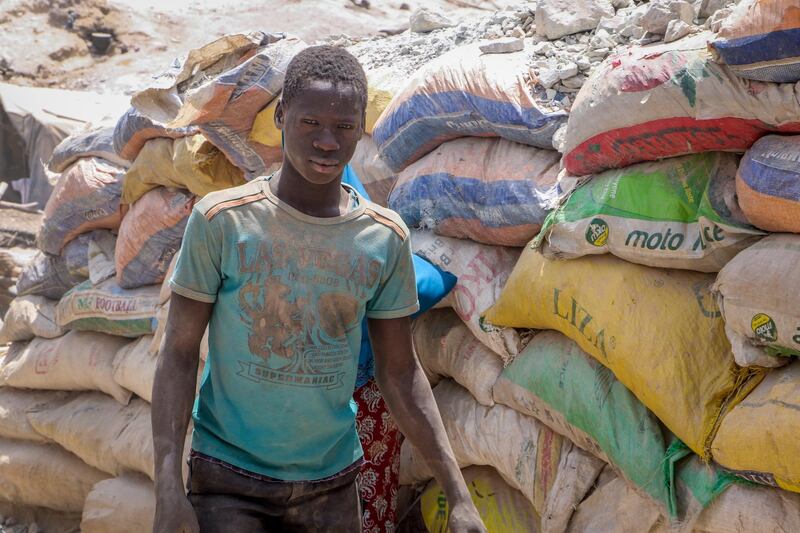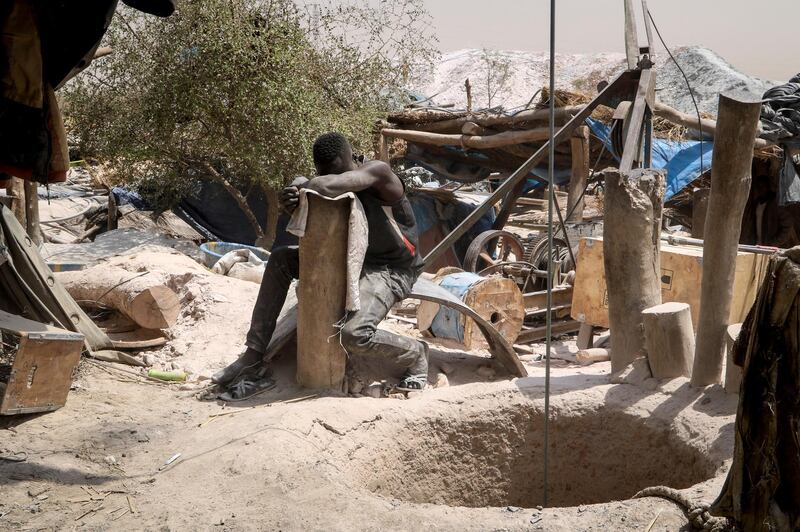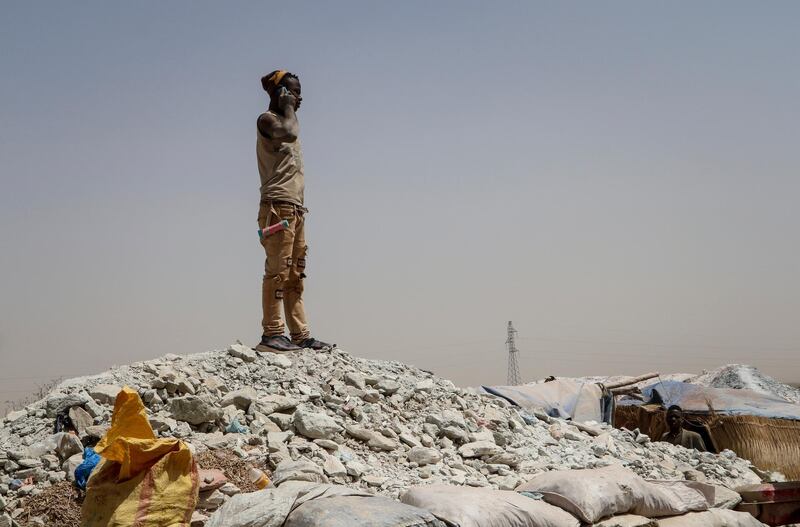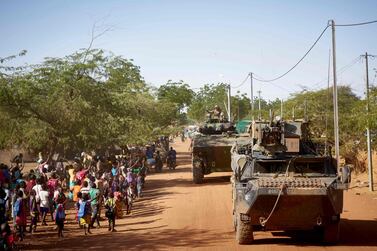The militants burst into the gold mine where Moussa Tambura worked in Burkina Faso and forbade everyone from smoking and drinking. Before long, they returned and levelled the place.
“They attacked the site, killed people and burned houses,” said Mr Tambura, 29, clenching his fists.
He was able to find work again after fleeing to Bouda, another town in country’s north that still has small-scale mining. Still, he struggles to provide for his family because his new job is not as well paid.
Militants linked to Al Qaeda and ISIS have overrun gold mines one by one as they try to gain control of Burkina Faso’s most lucrative industry. The extremists then collect a “protection tax” from communities living around the mines and also force the miners to sell them the gold exclusively, which is then smuggled and sold across the border to Benin, Ghana or Togo.
The violence has already forced many small mines in Burkina Faso’s volatile north to close and the government has tried to shut other small mines in the east so they cannot be used by extremists to fund more attacks.
Mining Minister Oumarou Idani has called the measure a necessary step in the “fight against terrorism”. But some of the remote sites continue running anyway as they escape the reach of the national government in Ouagadougou, other officials and analysts said.
Some are warning too that the government’s strategy to cut off the flow of money from the east may also backfire, as unemployed miners falling deeper into poverty could become more sympathetic to the extremist groups’ recruitment messages of marginalisation.
“You’re opening up the gates to push people to the terrorists,” said Oumarou Ganemtore, secretary for the National Union of the Artisanal Miners Association of Burkina Faso.
“How do you expect these guys to make a living? What will they do? Where will they go?”
About 1.5 million people are believed to be working in small mines across the country, according to government estimates. Many of them are young and know the surrounding area well, making them ideal recruits, analysts say.
The mines are more than merely a source of revenue and new members for the militants – they are also being used as hideouts, said Desire Nikiema, a local mining consultant who works in the region.
“Terrorists can hide in the mines and be anonymous, and collect information about the area and feed it back to their networks,” he said.
Prior to onset of the Covid-19 crisis here in March, Burkina Faso had become the fastest-growing gold producer in Africa and the fifth-largest on the continent, according to a February report by the German-based research group Glocon. The official $2 billion (Dh7.34bn) figure last year though mostly counts gold from a few industrial mines.
The country is also believed to have as many as 800 other small mines whose gold is smuggled and sold illegally. Burkina Faso’s government has estimated that this market is producing more than $400 million worth of gold a year.
Militants already have seized control of at least 20 such sites in eastern Burkina Faso, said Mahamadou Savadogo, a regional analyst who has carried out research with the International Institute for Strategic Studies. And their presence there is growing, he said, as the army conducts fewer operations amid the Covid-19 crisis.
Burkina Faso had already been described as “locked in a perilous downward spiral” by International Crisis Group before the emergence of Covid-19. Now they are fears the virus and changes in the mining industry could make things even worse. Already, about 850,000 people have become internally displaced amid the conflict, according to UN figures.
Jonas Hien, programme director for the Organisation for the Reinforcement of Development Capacities, a local aid group focused on human rights, said a further spike in unemployment could make that situation worse as unemployed miners migrate in search of income.
Since his previous site shut down, Issa Tambura has joined the night shift crew at the Bouda mine. It already has too many workers during the day.
“Before [the violence] the only thing you knew was that if you worked hard you would get money,” he said. “But right now, people with guns can pop up at any time and mess up the place, and we’re scared.”
